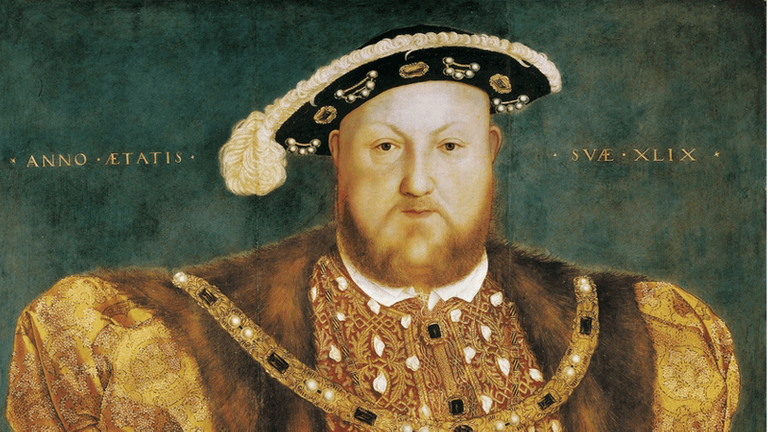The UK Parliament has something called "Parliamentary Privilege" which allows MPs to say whatever they want in Parliament, without being arrested or sued. They can make accusations without libel cases being brought, they can ask sensitive questions without fear, they can pretty much say what they want without anyone using legal means to shut them up, as long as they do it whilst on the floor of the House of Commons.
But where does this privilege come from?
The answer is it was granted by King Henry VIII
Henry VIII is infamous for his many wives (two of whom he beheaded) as well as his break from Rome.
What is often overlooked though is that he is one of the most important reforming Kings of England.
Prior to Henry, Parliament wasn't summoned much at all. Most kings tried to avoid it unless they were absolutely skint and needed to summon Parliament to ask permission to raise tax.
All this changes under Henry VIII - he summoned Parliament frequently, and his Reformation Parliament actually sat for seven years in one go, legislating on all sorts of things the King was asking them to consider, from establishing the Church of England to the Dissolution of the Monastries.
The most interesting thing is that he didn't actually need Parliament for any of it, he could have done it by proclamation. Until his reign, Parliament was confined to matters of tax, everything else was usually done by a proclamation by the King.
However Henry and his chief minister Thomas Cromwell felt that the reforms they were putting the country through were so momentous that they needed buy-in from Parliament to make them stick.
Therefore Henry started by summoning Parliament, flattering them - and then the big change - voluntarily transferring power from himself to them, (this is where we get the concept of the 'Crown in Parliament'). He then asked them to use their new powers to endorse the changes he was proposing. He was very successful - Parliament for the most part was quite enthusiastic about the reforms and they were even more enthusiastic about the power Henry voluntarily transferred to them.
Parliamentary Privilege
Parliamentary Privilege came about in the opening session of the Parliament of 1542. A new speaker was elected, Sir Thomas Moyle, and after being confirmed he made the traditional opening speech from the Speaker in the prescence of the King.
The Lords Journal records that
anyone (‘quivis’) who spoke according to the dictate of his conscience (‘quid Animi haberet’), and by way of counsel, should do so freely and with impunity. In reply, the chancellor (Sir Thomas Audley, who had himself been the first Speaker of the Reformation Parliament in 1529-33), confirmed that the King would not deny true liberty of speech (‘honestam dicendi libertatem’)
The chancellor was speaking on behalf of the King. Once the King had given assent, then permission passed to Parliament for MPs to say whatever they wanted while he was king.
This privilege was renewed by Mary I to her parliament and by Elizabeth I to her parliament. After that it became tradition and was used against Charles I who was impeached by the Commons in the English Civil War.
Why did Henry VIII agree to free speech for Parliamentarians? Because he wanted their help in raising taxes that year and felt that giving them something would grease the wheels.
The rest of the monarchs of Europe felt this was proof that Henry VIII had gone completely mad - on the continent they had absolute monarchy allied to the Catholic church and thought this business of consulting Parliament and voluntarily transferring power to Parliament was dangerous. Henry though wasn't the least bit scared of Parliament, he felt they were allies in his great adventure to reform England.
Henry was also not insane. Vain, selfish, brutal, yes. Brilliant too. But not insane. We owe our modern system to him. Uniquely in Europe no revolution had to take place for power to pass from Crown to Parliament, It was given to them voluntarily by Henry VIII, it was all his idea. When a later king (Charles I) tried to take back the power, that is when you had a revolution/the civil war. But it was a conservative revolution that consisted of Parliament saying, "You can't take our powers away, it's traditional that we have them, we've enjoyed them since Henry VIII". Fun fact: Oliver Cromwell was a minor relative to Thomas Cromwell, Henry's great minister, he was descended from Cromwell's sister, and he actually changed his surname from Steward to Cromwell because he valued the reforms Henry VIII and Thomas Cromwell had brought about.
